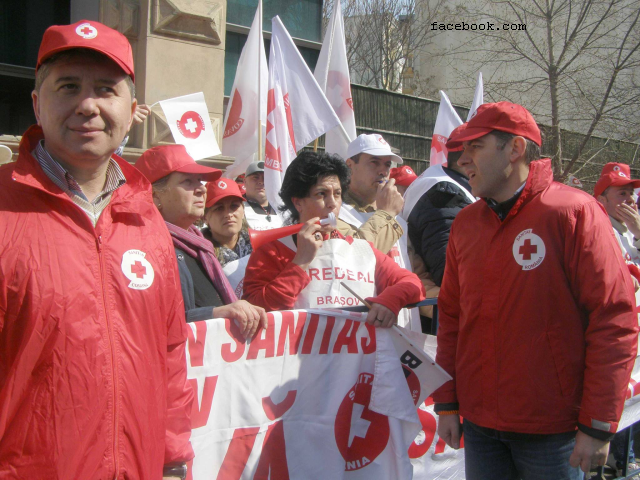Protests in Romanian hospitals
Auxiliary medical staff stage protests against drop in incomes after implementation of new pay scheme in the public sector.

Bogdan Matei, 18.04.2018, 13:40
For a very long time now, all the troubles in the
Romanian healthcare sector have been blamed on underfunding. Old hospitals,
with bacteria floating around, with insufficient and old equipment, always
lacking medicine, some of them essential for hospital treatment, insufficient,
unmotivated and disinterested staff – at times even hostile to patients – have
all been explained as a consequence of insufficient funding.
Therefore, the current ruling coalition, made up of
the Social Democratic Party and the Alliance of Liberals and Democrats,
promised from the very beginning to radically change the situation. They have
promised that the pay rises in the system will be so big, that the Romanian
doctors who are now working in clinics and hospitals abroad will be lured back
to the country. According to a survey conducted by the Romanian Association for
Health Promotion, the number of Romanian medical doctors working abroad stands
at approximately 15,700.
Indeed, since the start of the year, doctors’
salaries have increased considerably on average, from the equivalent of several
hundreds of euros to thousands of euros. However, instead of going away,
tension in the healthcare system has grown. Trade unions have taken to the
streets to call for rises for the entire staff in the healthcare and welfare
sectors, and for the elimination of the cap on benefits to 30% of the sum of a
basic salary at the level of the main budget administrators.
On Friday, the biggest healthcare trade union,
Sanitas, announced it would stop protests for a week, to give time to the
solution proposed by the minister Sorina Pintea to produce its effects.
According to the health minister, hospitals will be able to use their own funds
to grant benefits and other financial incentives to the employees whose incomes
have dropped.
Despite this, lots of spontaneous protests have
started in many hospitals in Bucharest and across the country. According to the
protesters, the money provided by hospitals is insufficient, so the salaries of
biologists, pharmacists, nurses and orderlies have continued to drop. At the
Infectious Diseases Hospital in Galati, south-eastern Romania, for instance,
they say that their salaries have been 20% lower than in the previous month:
Orderlies have earned 300-400 lei less than before.
Our benefits have dropped, and therefore our salaries have dropped, too. Nurses
too have received 20% less. The benefit for working with infectious diseases
used to be 25%, now it’s 15%. As the World Health Organisation has declared,
infectious diseases create a contagious environment, so we and our families are
in constant danger.
The manger of the hospital in Galati, doctor Mihaela
Debita, has said that benefits were cut in keeping with the legal provisions in
force:
We could not ensure the 85% benefit for those who
work with HIV patients, and we could not ensure 25% for the entire hospital,
because we did not have the necessary funds. I have tried to observe the range
of minimum and maximum levels, as written in the law. What else could I have
done?
Pundits say that the solution proposed by the
ministry is not viable and believe that protests will continue, and so will
warnings about an imminent all-out strike.






























